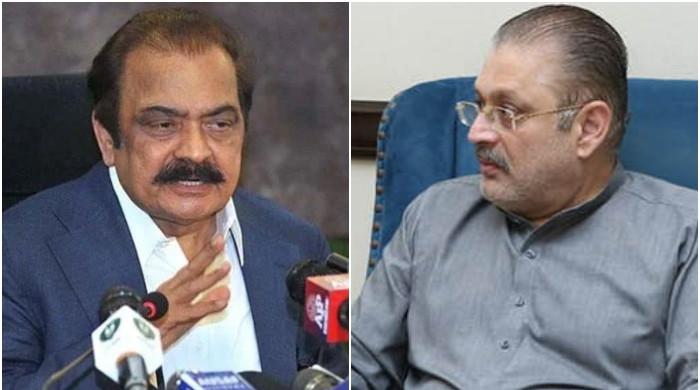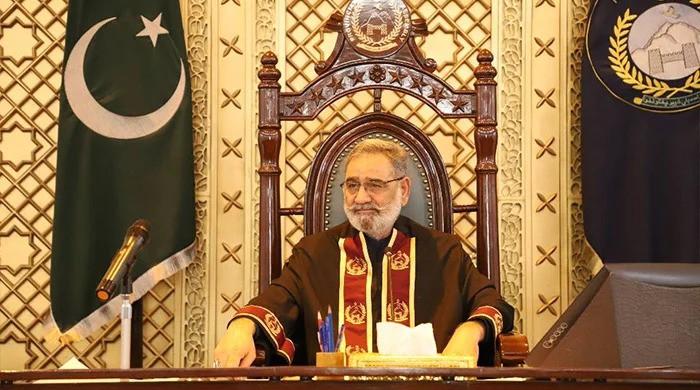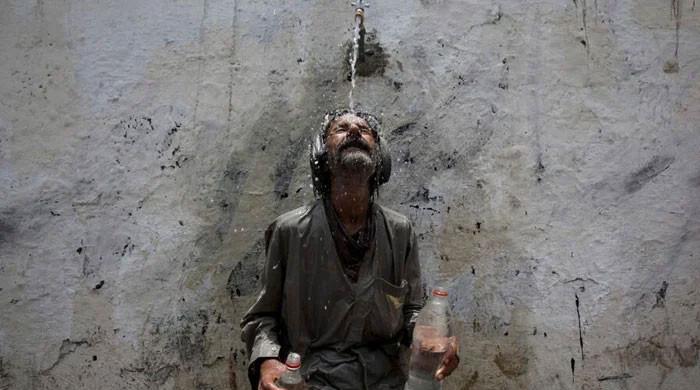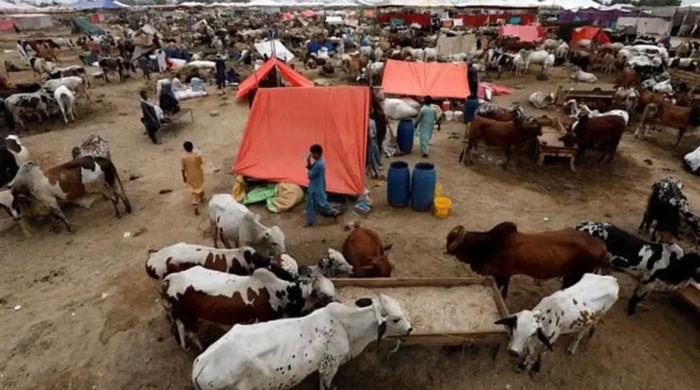Taliban govt has expressed willingness for return of Afghan migrants from Pakistan, says diplomat
Consul General Mohibullah says time has come for Afghan nationals to return to their homeland
April 16, 2025
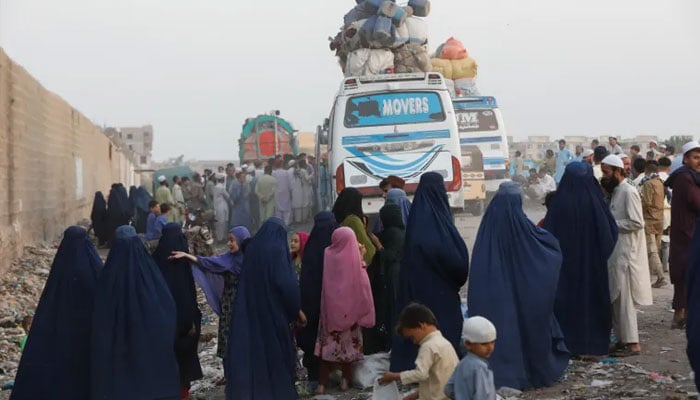
- Shakir acknowledged Pakistan's support for Afghan refugees.
- Special commission formed to oversee repatriation process.
- Camps established in Afghanistan for returnees: consul general.
PESHAWAR: Afghan Consul General Mohibullah Shakir has acknowledged Pakistan's four-decade-long support for Afghan refugees, saying that the Taliban-led government is prepared to facilitate the return of its nationals.
Speaking to journalists in Peshawar, he noted that a special commission has been formed by the Afghan authorities to oversee the repatriation process.
He added that camps have been established in Afghanistan for the returnees, where transportation and basic facilities are being provided to ensure a smooth transition. “Afghan nationals will not face any difficulties during the return process,” he assured.
The federal government announced at the start of March that 800,000 Afghan Citizen Cards (ACC) would be cancelled — the second phase of a deportation programme which has already forced 800,000 undocumented Afghans across the border.
The country has been hosting millions of Afghans for around five decades. Hundreds of thousands of them returned to their country in the last few years but still over 2.1 million are living in Khyber Pakhtunkhwa (KP) and other provinces.
Pakistan had set March 31 as the deadline for all the illegal Afghans as well as those who possessed ACC cards to return to their country amid rising incidents of terrorism in the country.
Last year was the deadliest year in almost a decade in Pakistan, with more than 1,600 people lost their lives in attacks — nearly half of them security forces personnel — according to the Islamabad-based Centre for Research and Security Studies.
Pakistan accuses the Taliban government of failing to root out militants sheltering on Afghan soil, a charge the Taliban government denies.
The Taliban government has repeatedly called for the "dignified" return of Afghans to their country, with Prime Minister Hassan Akhund urging countries hosting Afghans not to force them out.
Addressing the media today, Shakir drew a historic parallel, saying that Pakistan treated the refugees with the same spirit of brotherhood shown by the "Ansar" to the "Muhajireen" in Islam's early days.
He noted that Afghan children studied alongside Pakistani students and enjoyed complete freedom of movement during their stay. However, he said the time has come for their return to their homeland.
The envoy revealed that Taliban Supreme Leader Haibatullah Akhunzada has assured that Afghanistan is now peaceful and ready to welcome its citizens back. "The supreme leader himself confirmed that the era of conflict has ended," he added.
He said that land allocations planned in Kunar and Nangarhar provinces and job opportunities in agriculture and business sectors to be provided.
"Pakistan will always remain our brotherly nation," the consul general said, adding: "But now we must rebuild our own country with the same determination our people showed during difficult times."
Number of Afghan refugees in Pakistan
According to data obtained by Geo News, there are currently 2.1 million registered and unregistered Afghan refugees in Pakistan.
Sources in the Ministry of States and Frontier Regions (Safron) state that 1.4 million Afghan refugees are legally registered, while 800,000 Afghan nationals hold an 'Afghan Citizen Card' (ACC), but their stay is now considered illegal.
However, the government claims that the total number of Afghan refugees in Pakistan is three million, all of whom are set to be repatriated this year under the illegal foreign nationals' deportation plan.
Four categories
Afghan nationals residing in Pakistan for decades fall into four categories.
The first category consists of Afghan citizens who fled to Pakistan due to instability in Afghanistan and were granted official refugee status. In 2007, Pakistan issued Proof of Registration (PoR) Cards to these refugees, who now number around 1.3 million. The government issued these cards only once, renewing them periodically, with the current validity expiring on June 30, 2025.
The second category includes Afghan nationals who were issued Afghan Citizen Cards (ACC). Approximately 800,000 individuals received these cards in 2016, and they are now being repatriated as part of government deportation efforts.
The third category comprises Afghan nationals who fled to Pakistan after the Taliban takeover in 2021. These individuals were granted asylum under international protocols. While the Pakistani government initially claimed that 600,000 Afghans arrived after the US withdrawal, the United Nations High Commissioner for Refugees (UNHCR) states that only 200,000 were officially registered.
The fourth category includes undocumented Afghan nationals who lack both PoR and ACC status and are not registered as asylum seekers from the 2021 influx. This category also includes those who have married in Pakistan and obtained fake national identity cards. Over the past two years, the National Database and Registration Authority (Nadra) has been cancelling such fraudulent IDs through its National Verification and Renewal Drive, now classifying these individuals as illegal residents.




